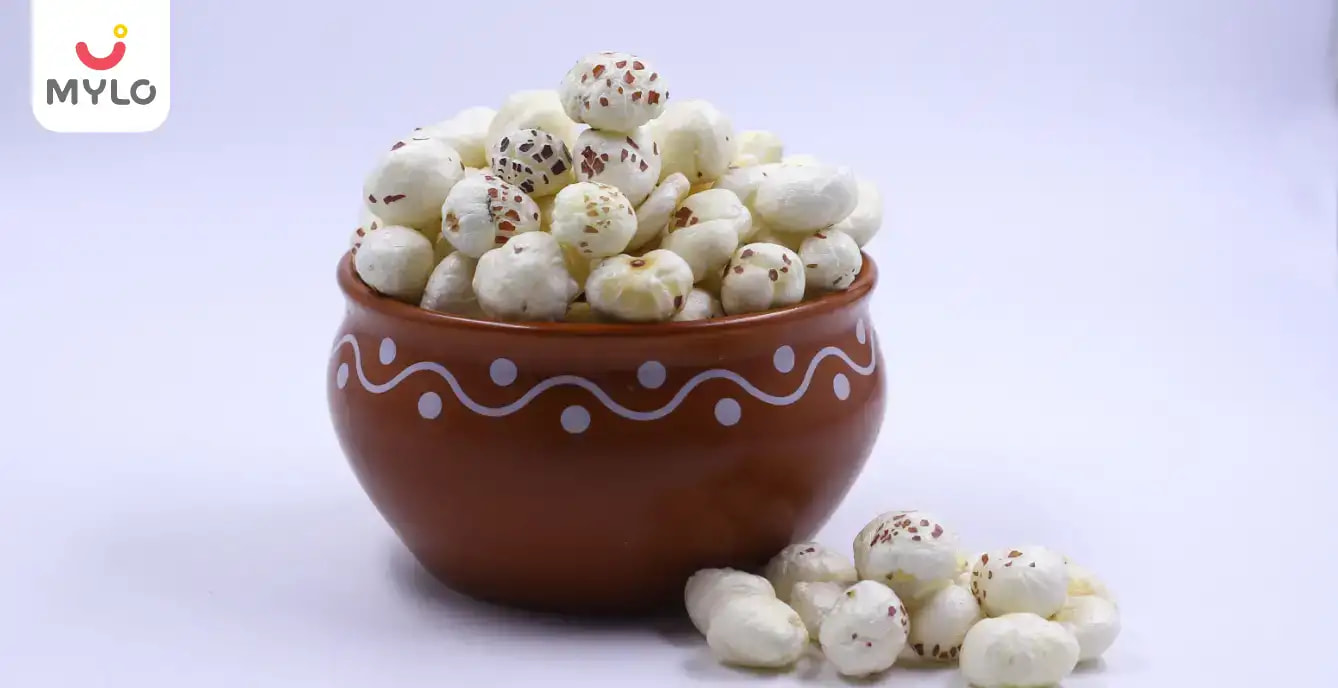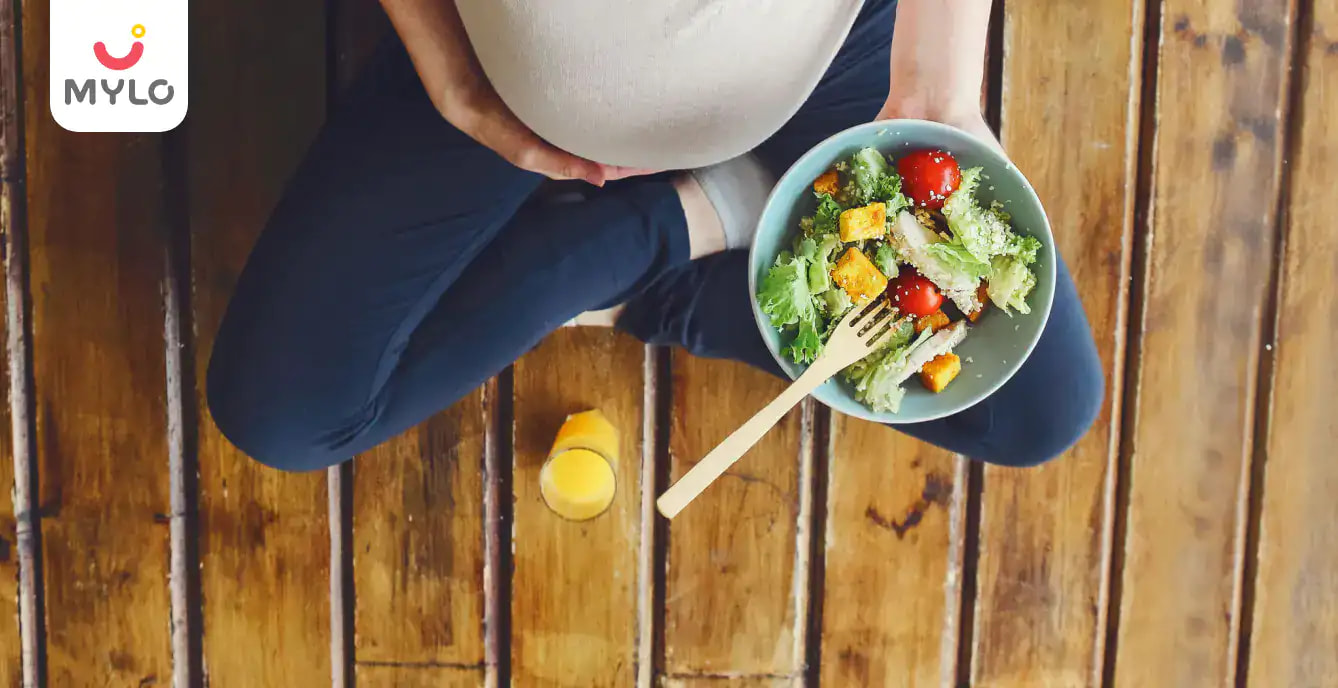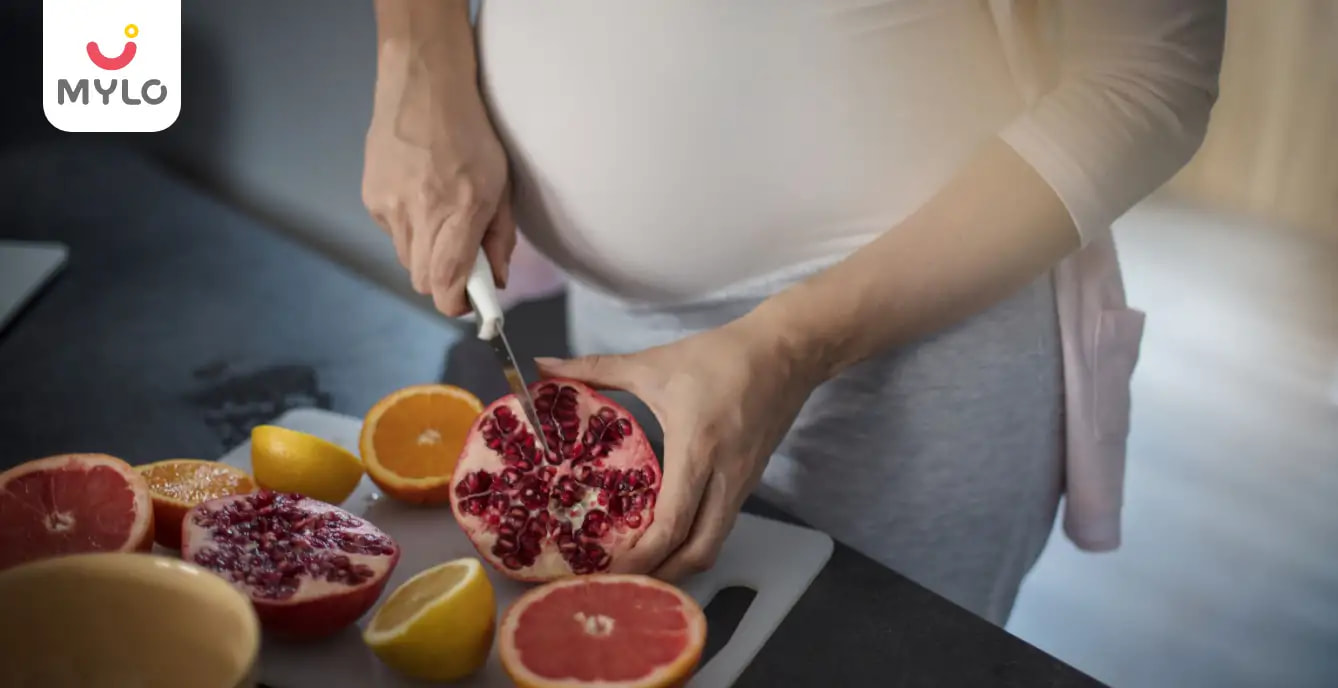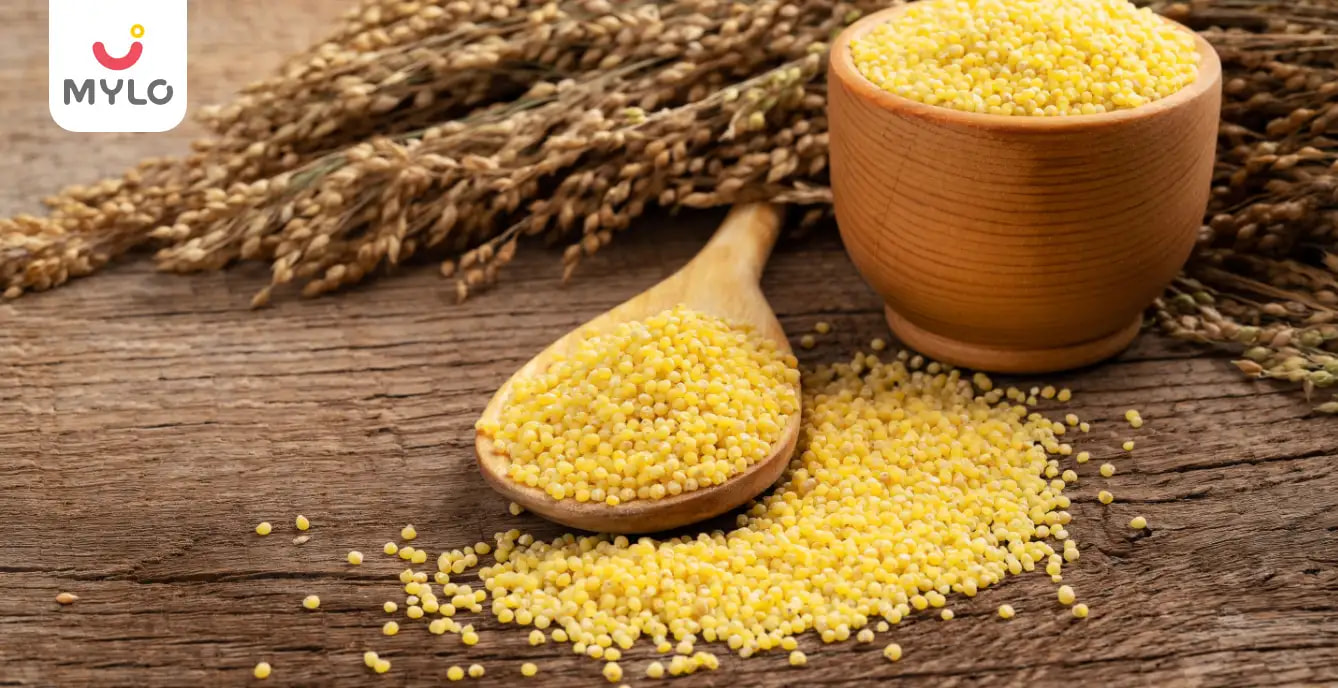Home

Diet & Nutrition

An Expecting Mother's Guide to Following a Vegetarian Diet
In this Article
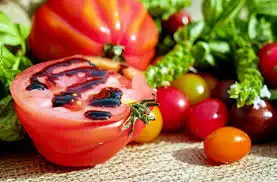
Diet & Nutrition
An Expecting Mother's Guide to Following a Vegetarian Diet
Updated on 15 May 2023



Medically Reviewed by
Dt. Mansi Goyal
Specializes in Critical Gestational Diabetes, PCOS Patients - BSC| MSC (Home Science, Food & Nutrition)
View Profile

Vegetarian diets have no meat in them, and many pregnant women make this choice either as a cultural consequence or because they just don’t want to consume meat due to some other reasons. During pregnancy when the body’s nutritional needs are high, a variety of vegetarian foods should be included in the diet to get all the essential nutrients required by the baby. The good thing is that you can be a pregnant vegetarian and still get all the protein, vitamins, minerals, and other nutrients you need. You need to make sure that you eat a variety of healthy fruits, vegetables, legumes and nuts to get all the required nutrition.
In this article, we will discuss how much nutrition, calorie and vitamins you need for a healthy pregnancy and how you can fulfil these requirements while being a vegetarian.
Nutrients To Be Extra Careful About When You're a Pregnant Vegetarian
Protein, calcium, iron, vitamin B12 and vitamin D are all nutrients to be mindful of when you're expecting and adhering to your vegetarian or vegan diet.
1. Protein
Why: Expecting women need more protein than ever because protein helps to build cells and produce hormones for your growing baby. If you’re a dairy or egg-eating vegetarian, you may already get what you need from potent protein sources (eggs, cheese, yogurt etc.). If you're worried you're not getting enough or are a vegan, there are veggie-based proteins that you can add to your diet.
How Much: 60-100 grams per day
Foods to Eat: Here are vegetarian protein-rich foods you can eat during pregnancy:
- Legumes, whole grains, soy and nuts and seeds
- Split or green peas
- Chickpeas
- Black, navy, kidney or pinto beans
- Quinoa
- Bulgar, buckwheat and whole wheat couscous
- Oatmeal
- Whole-wheat pasta
- Whole-grain cereals and bread
- Nut butter
- Walnuts, cashews, pistachios, almonds and pine nuts
- Soy milk
- Tofu
- Miso
2. Calcium
Why: Calcium is key for building your baby’s bones, muscles, heart and nerves, especially during the third trimester. In fact, it's so essential to a baby's development that if they don't get enough from your diet, they'll take that from your bones, potentially putting you at risk of osteoporosis later in life. Luckily, dairy products aren't the only options for getting your daily recommended amounts. Your doctor may also suggest you a calcium supplement for extra insurance.
How Much: 1,000 mg per day
Foods to Eat: Here are vegetarian calcium-rich foods you can eat during pregnancy:
- Yogurt
- Milk
- Cheese
- Green leafy vegetables
- Soy milk
- Tofu
- Calcium-fortified orange juice
3. Iron
Why: Your blood volume increases by nearly 50 per cent during pregnancy to support you and your developing baby — and iron is required to produce more red blood cells. Not getting enough? Low iron can result in iron deficiency and anemia during pregnancy, which, left untreated, may also lead to preterm labor and low birth weight. One easy way to get the iron that you need is to consume an iron supplement, which your doctor may recommend in addition to the prenatal vitamins after week 20 of pregnancy.
How Much: About 27 mg
Foods to Eat: Here are vegetarian iron-rich foods you can eat during pregnancy:
- Beans
- Edamame
- Soy products
- Oat bran
- Barley
- Quinoa
- Bulgur
- Pumpkin seeds
- Dried fruit
- Spinach, collard greens or kale
- Seaweed
- Foxnuts
4. Vitamin B12
Why: Vitamin B12 partners with folic acid to help with proper fetal brain development; it’s also important for the formation of red blood cells and for building genetic material. A B12 deficiency may cause neural tube defects and a higher risk of preterm labor. Though B12 deficiencies are uncommon, vegetarians and particularly vegans often don’t get enough of this vitamin, since it’s present only in animal-based foods. If you're suffering from a B12 deficiency, your doctor can recommend a B12 supplement along with folic acid.
How Much: 2.6 mcg per day
Foods to Eat: Here are vegetarian vitamin B12-rich foods you can eat during pregnancy:
- Vitamin B12-fortified soy milk
- Fortified cereals
- Nutritional yeast
- Fortified meat substitutes
5. Vitamin D
Why: This vital vitamin is crucial in building and maintaining healthy teeth and bones. Severe deficiency has been linked to complications including congenital rickets (a condition that causes the bones to become soft and weak, leading to poor growth and skeletal deformities as well as bone fractures in newborns. Milk and fish are the best dietary sources of vitamin D. If neither is a part of your diet, a few minutes under the Sun each day can help your body produce vitamin D during pregnancy.
How much: 10 micrograms per day
Foods to eat: Here are vegetarian vitamin D-rich foods you can eat during pregnancy:
- Fortified soy milk
- Fortified bread and cereals
- Fortified orange juice
- Yogurt
- Mushrooms
- Cheese
Closing Thoughts
Consuming a vegetarian diet doesn't need to be a nutritional challenge for you during pregnancy as long as you are mindful of your nutritional requirement and intake. Besides your prenatal vitamins and supplements will help to make up for the nutrients you may lack in a vegetarian diet.





Medically Reviewed by
Dt. Mansi Goyal
Specializes in Critical Gestational Diabetes, PCOS Patients - BSC| MSC (Home Science, Food & Nutrition)
View Profile


Written by
Ravish Goyal
Official account of Mylo Editor
Read MoreGet baby's diet chart, and growth tips

Related Articles
Related Questions
Hello frnds..still no pain...doctor said head fix nhi hua hai..bt vagina me pain hai aur back pain bhi... anyone having same issues??

Kon kon c chije aisi hai jo pregnancy mei gas acidity jalan karti hain... Koi btayega plz bcz mujhe aksar khane ke baad hi samagh aata hai ki is chij se gas acidity jalan ho gyi hai. Please share your knowledge

I am 13 week pregnancy. Anyone having Storione-xt tablet. It better to have morning or night ???

Hlo to be moms....i hv a query...in my 9.5 wk i feel body joint pain like in ankle, knee, wrist, shoulder, toes....pain intensity is high...i cnt sleep....what should i do pls help....cn i cosult my doc.

Influenza and boostrix injection kisiko laga hai kya 8 month pregnancy me and q lagta hai ye plz reply me

Related Topics
RECENTLY PUBLISHED ARTICLES
our most recent articles
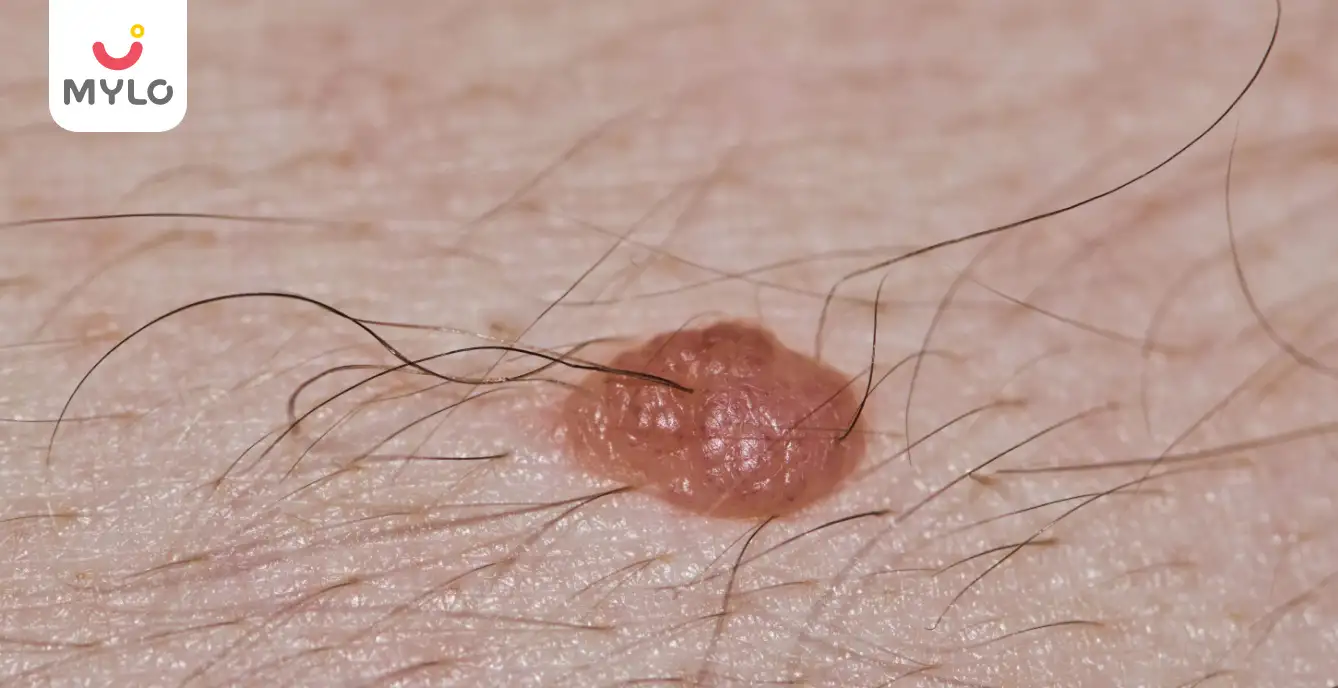
skin care
Giant Congenital Melanocytic Nevus: Causes, Symptoms, & Treatment
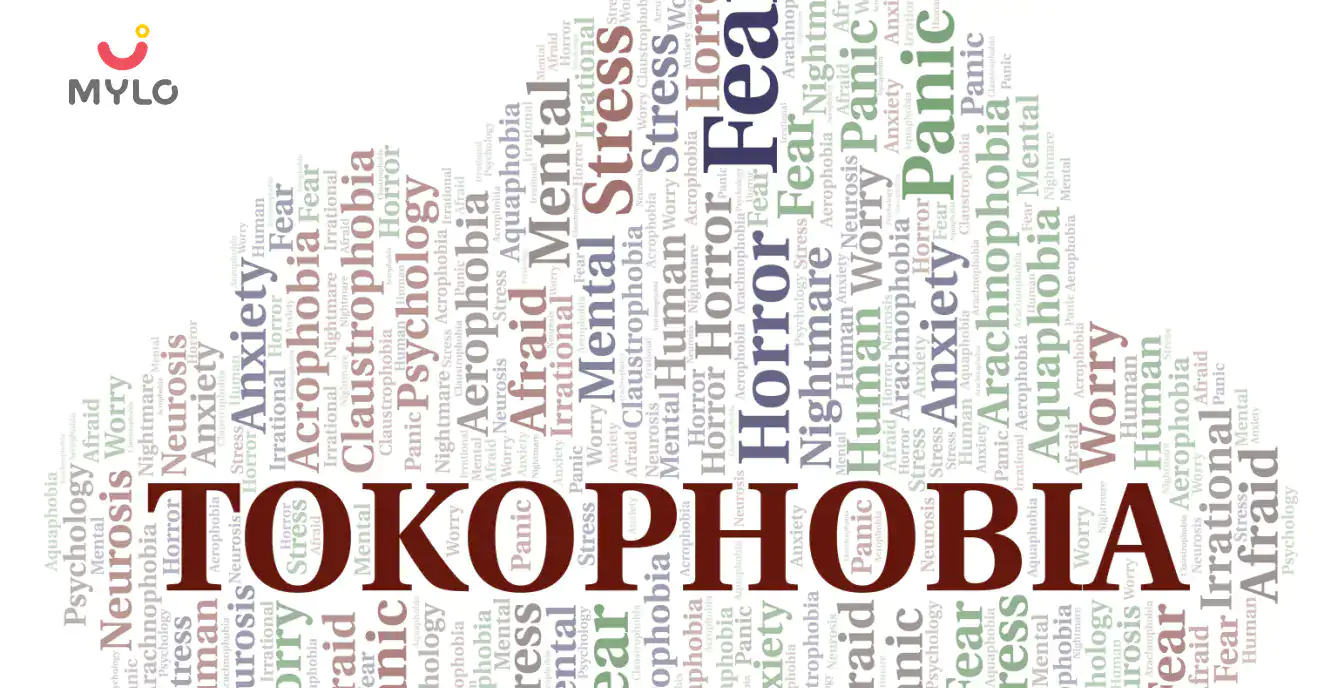
Fears & Phobias
Tokophobia: How to Manage Your Phobia of Pregnancy & Childbirth
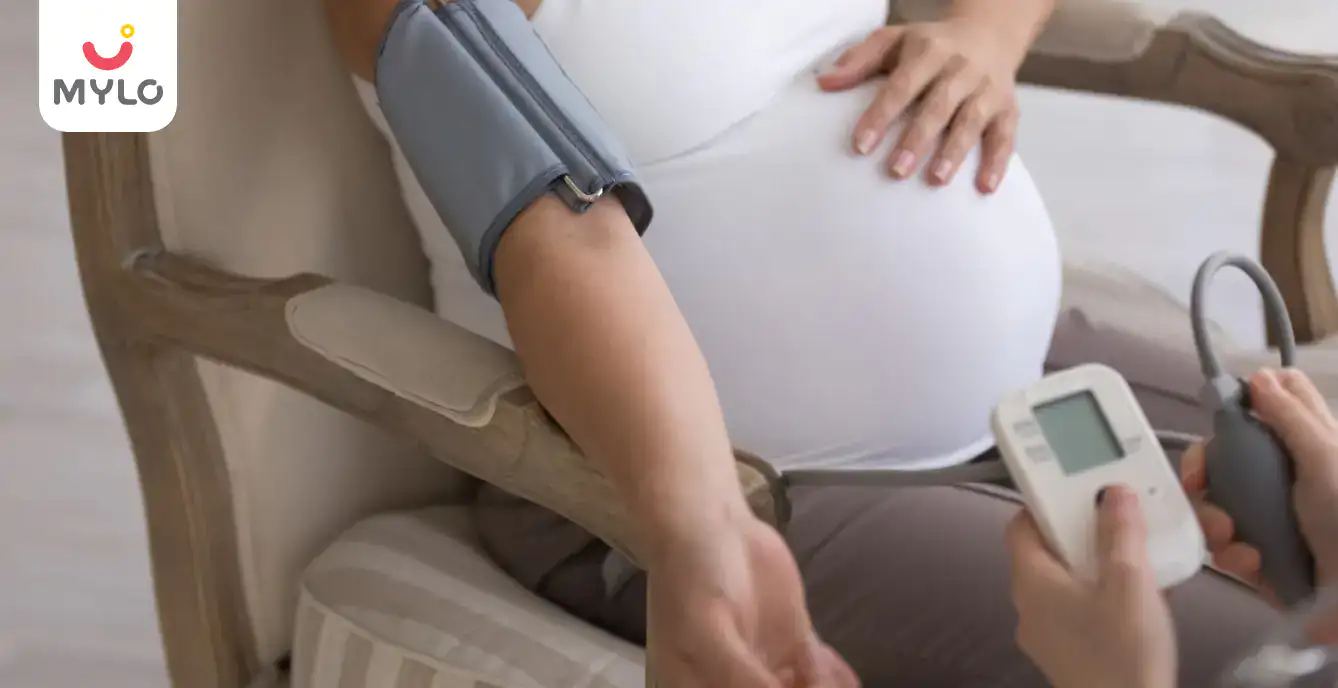
Low BP in Pregnancy: Symptoms, Effects & Treatments
Twins & Triplets
Helping your twins to sleep at the same time
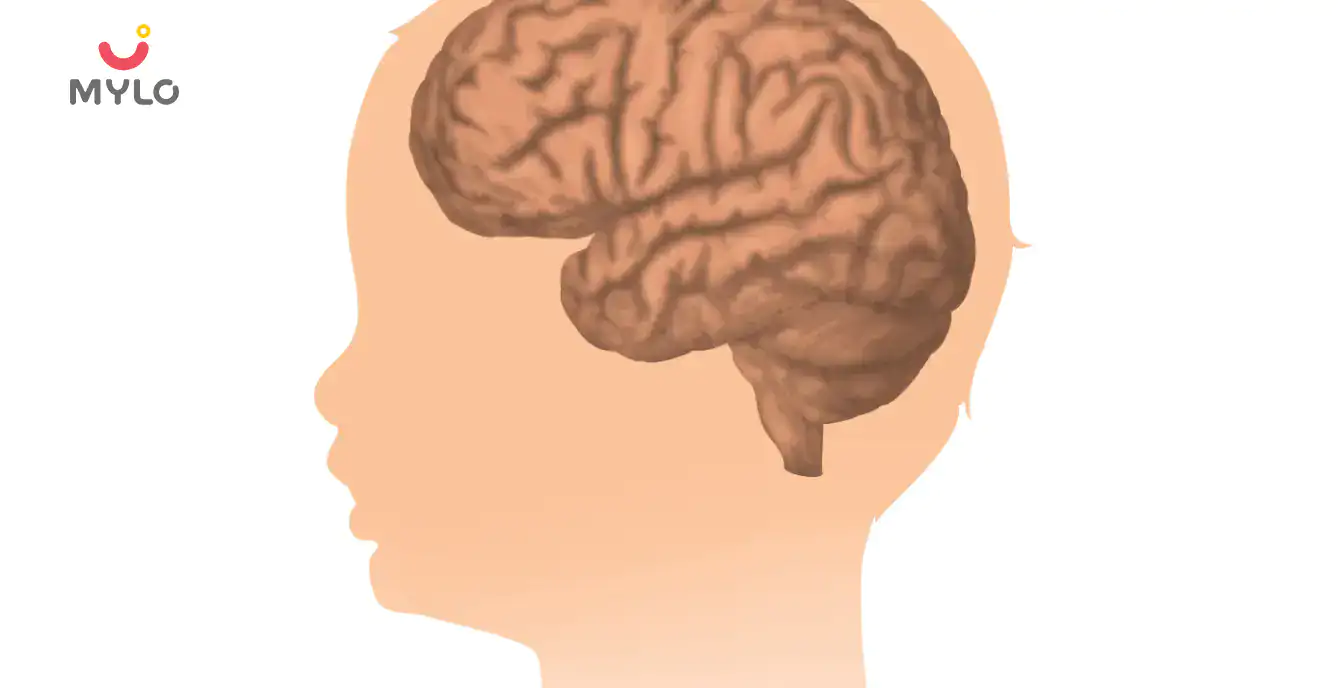
Brain Development
Baby Brain Development: What You Should Know
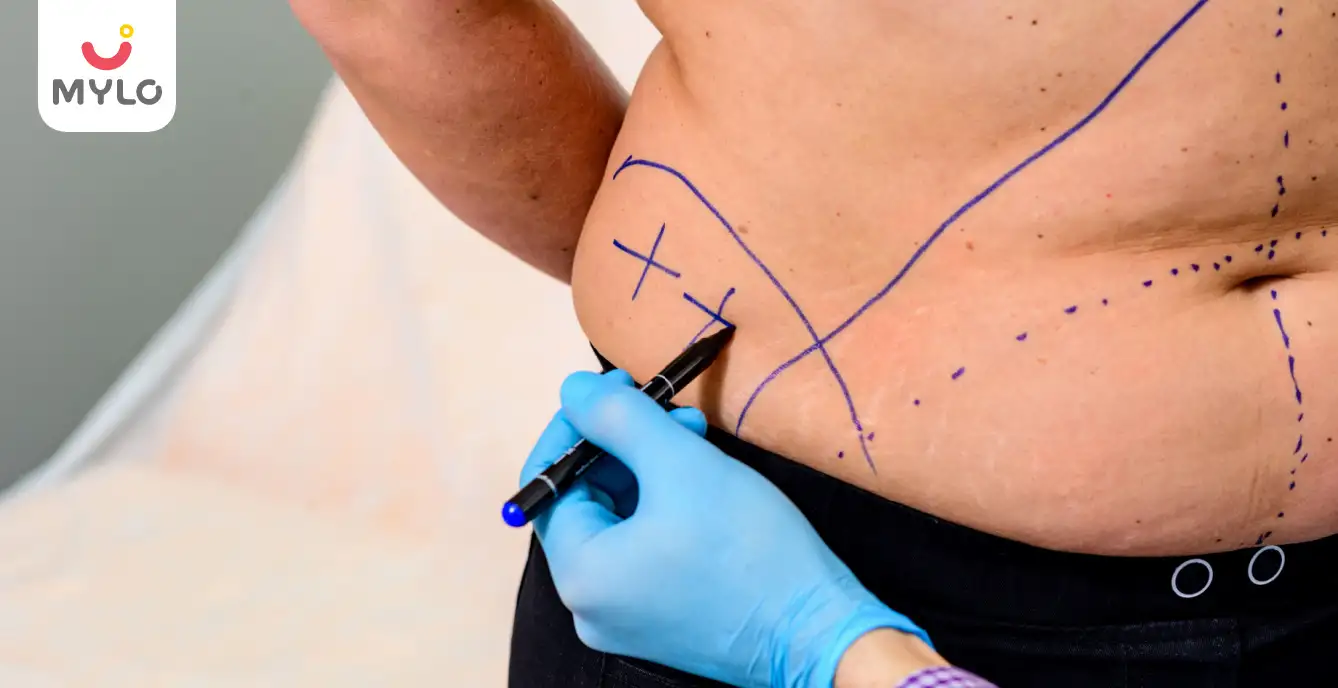
Medical Procedures
Tummy Tuck (Abdominoplasty) Procedure, Risks, Preparation & Recovery
- Spina Bifida: Causes, Symptoms & Treatment
- Diastasis Recti: Causes, Symptoms, Risks & Preventions
- Opioid Overdose, Risk & Prevention
- Is Pregnancy After 35 Right for You? A Comprehensive Guide
- Clubfoot (Talipes Equinovarus): Meaning, Symptoms & More
- RSV (Respiratory Syncytial Virus): Symptoms, Causes & Treatment
- Loose Vagina: Learn How To Tighten Your Vagina Naturally
- Umbilical Cord Prolapse Causes, Symptoms & Treatment
- Bipolar Disorder: Causes, Symptoms, Risks & Treatment
- Sinus Infection During Pregnancy Causes & Treatment
- Intrauterine Growth Restriction (IUGR) in Pregnancy
- APGAR Score: Meaning & How it is Performed
- Dyspareunia (Painful Intercourse): Causes & Treatment
- Short Bowel Syndrome: Causes, Symptoms, and Treatment


AWARDS AND RECOGNITION

Mylo wins Forbes D2C Disruptor award

Mylo wins The Economic Times Promising Brands 2022
AS SEEN IN

- Mylo Care: Effective and science-backed personal care and wellness solutions for a joyful you.
- Mylo Baby: Science-backed, gentle and effective personal care & hygiene range for your little one.
- Mylo Community: Trusted and empathetic community of 10mn+ parents and experts.
Product Categories
baby carrier | baby soap | baby wipes | stretch marks cream | baby cream | baby shampoo | baby massage oil | baby hair oil | stretch marks oil | baby body wash | baby powder | baby lotion | diaper rash cream | newborn diapers | teether | baby kajal | baby diapers | cloth diapers |



